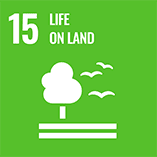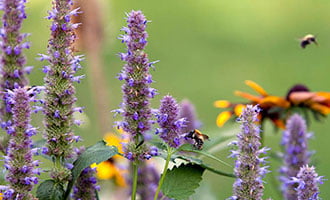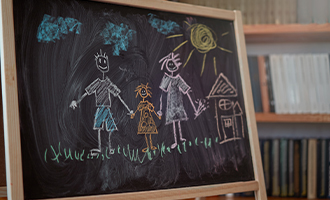May 2023
Nomura London's Buzzing Project
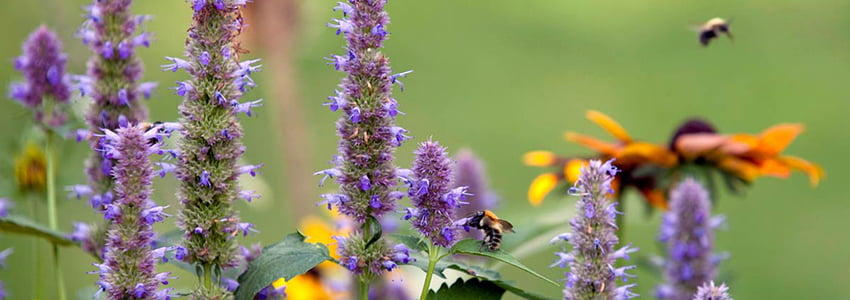
Our European headquarters in London is located in the City financial district overlooking the Thames. The 11 story building houses 2 terrace gardens on the 5th and 6th levels where, for more than ten years, we have been growing a variety of flowers and plants as well as organic vegetables which are used onsite. These plants attract insects, or pollinators, and these in turn attract birds, including some rare species.
Our 11th floor roof is a biodiverse bio-solar green roof which unlike the terrace gardens is more wild and rugged in nature. The roof is a mosaic of pioneering habitats including sedums, open ground and longer meadow type vegetation containing wildflowers, grasses and herbs. Our roof is special as it contains the largest colony of near threatened Green Winged Orchids in the Greater London area and is the only site in the UK to host a colony of Small Flowered Tongued orchid. Our roof is also home to nationally scarce insects like the Adonis Ladybird and Rare breeding birds such as the Black Redstart.
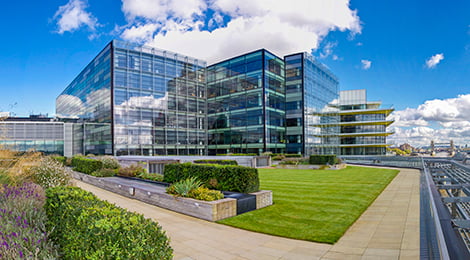
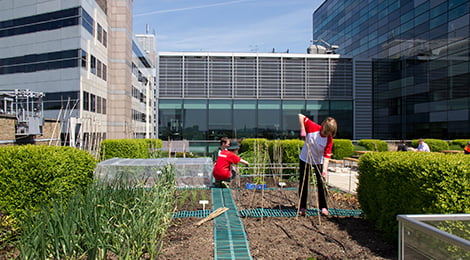
Since 2011, our green roof has been home to 2 beehives operated in collaboration with our charity partners. By hosting weekly visits to the beehives during the summer months, we provide employees the opportunity to learn about the importance of biodiversity and the natural environment, as well as appreciate the crucial role that bees have within our ecosystem and food chain. Employees can also participate in honey harvesting workshops, help with the harvesting, filtering and bottling of honey, and take part in our 'Adopt a Bee' program.
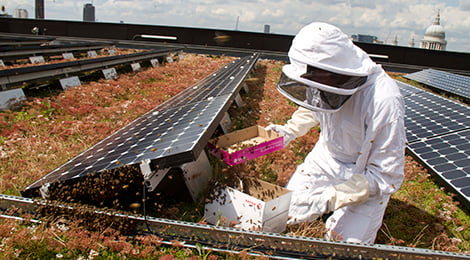
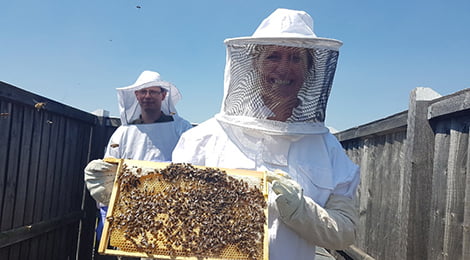
Most of the food that we eat, such as vegetables, fruits, nuts, and raw materials such as coffee beans and cacao beans, depend on plants being pollinated by insects, such as bees. However, pollinators have declined drastically due to global warming and the widespread use of pesticides. Urban development has also contributed to the destruction of nature and this threatens to destroy vital habitats. Studies suggest that if habitats continue to be destroyed, we could lose one third of the food that comes to our table. This is a serious problem that affects us all.
Climate change and environmental stressors pressure biodiversity and damage its natural resources. Industries and communities must come together to preserve the diversity of the planet through supporting sustainable development and species conservation projects.
In 2019, we began a series of biodiversity enhancements and investments to the 11th floor green roof Installing a variety of invertebrate nesting habitats including bee hotels, soil and sand nesting mounds, hoverfly breeding ponds and deadwood habitat.
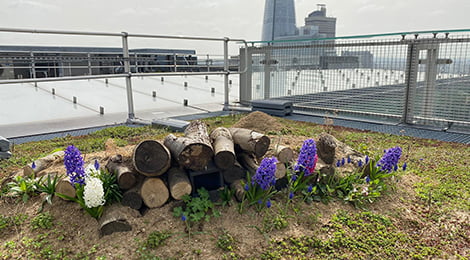
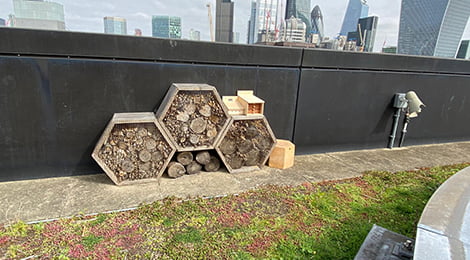
We've also added additional soil depth to parts of the roof to improve storm water retention and to accommodate a wider range of plants with deeper roots which can better mitigate the effects of climate change and enhance biodiversity. Our charity Partner St Marys Secret Garden delivers these enhancement works using skilled ecologists and a volunteers from the community.
Alongside the improvement works we are delivering a thorough biological monitoring project to monitor the value of the roof to wildlife. This monitoring will inform the management of the green roof and allow us to better protect the biodiversity onsite as well as informing the Citywide Biodiversity Action Plan.
Nomura will continue to promote the importance of biodiversity and healthy ecosystems. By providing opportunities for our employees to understand how the ecosystem works, we aim to contribute to the conservation of pollinators, as well as environmental preservation and sustainability.
To see our ecological monitoring please click here (PDF 4,054KB).
SDGs Goals
